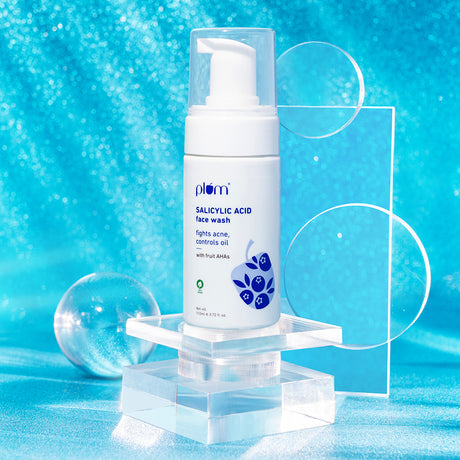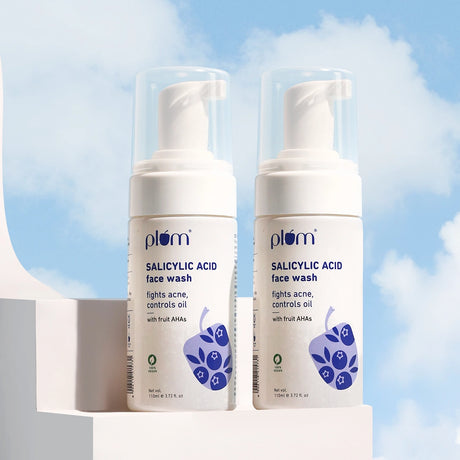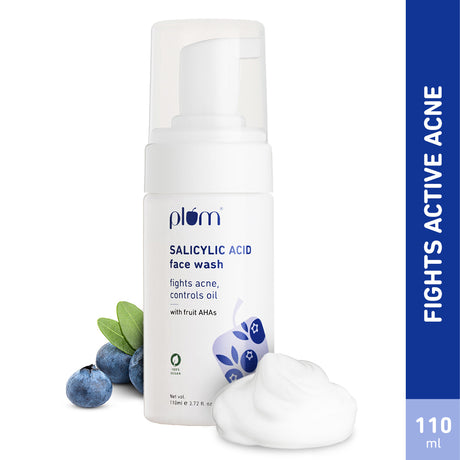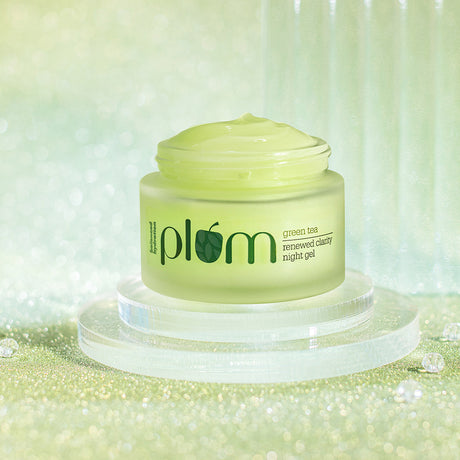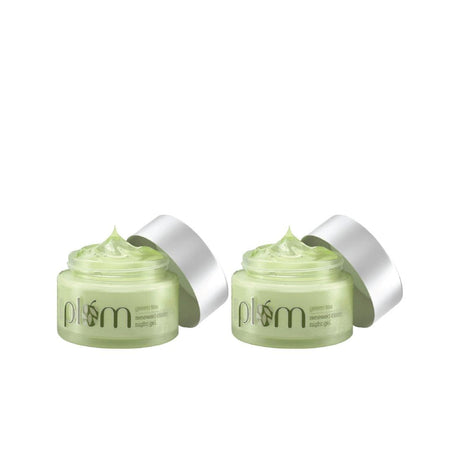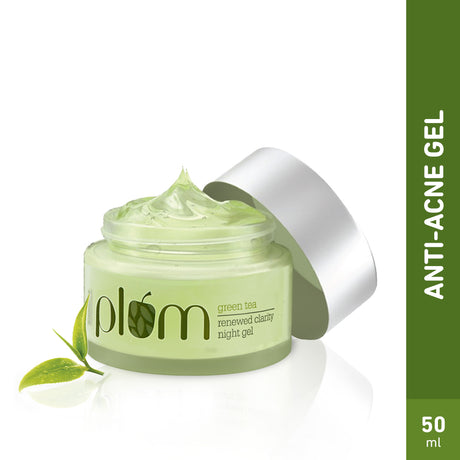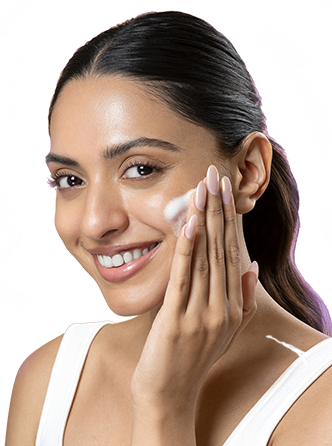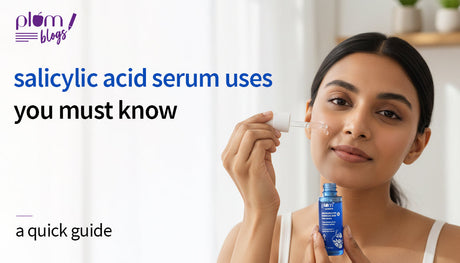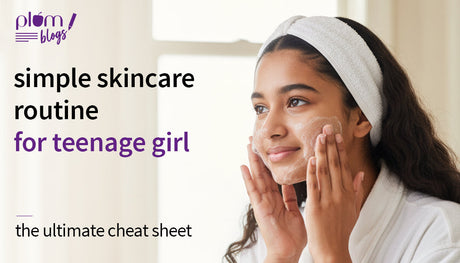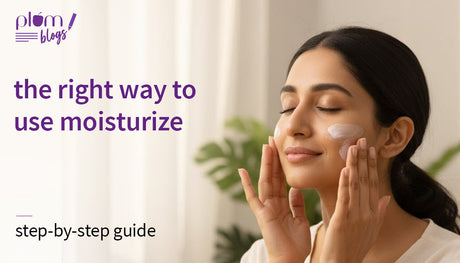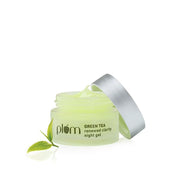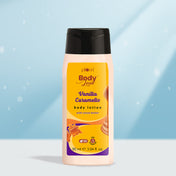
IN THIS ARTICLE
You might have been repeatedly advised to exfoliate your skin, but why?
Here’s the answer- regulated exfoliation is key to maintaining healthy, glowing skin, whether of your face or your body.
Removing dead skin cells from the surface of the skin helps reveal a smoother, brighter complexion while unclogging pores and preventing breakouts.
So, if you are one among those who have held back from exfoliating all out of sheer fear of skin sensitivity, or if you aren't entirely sure about how it's done, we have all the answers for you.
Read on to learn all about exfoliation, how to exfoliate skin, and dos and don'ts for exfoliation.
What is exfoliation?
In simple terms, exfoliation is the process of removing dead skin cells from the surface of your skin. The skin constantly generates new skin cells while shedding dead skin cells. These dead skin cells and impurities often clog your pores, diminish your natural glow, and even cause acne.
However, regular exfoliation helps remove these dead skin cells effectively, revealing a brighter, clearer, and healthier complexion.
Exfoliation is not just about enhancing beauty; it also boosts the functionality of skincare products. It allows serums, moisturizers, and other treatments to penetrate deeper into the skin's layers, making them work even more effectively.
So it's not just vanity; it improves the whole skincare circle!
Why do you need to exfoliate your skin?
Lack of exfoliation can leave your skin feeling dull and flaky. Additionally, regular exfoliation has the following benefits:
-
Reveals smoother, fresher skin
Exfoliating sloughs off the dead skin resting on the skin's surface, revealing the fresh skin underneath, making the skin brighter and smoother.
-
Enhances Absorption
An accumulated layer of dry skin cells and impurities on your dermis hinders your favorite serums and moisturizers from penetrating deeply. Regular exfoliation keeps your dermis clean, allowing the skincare actives to penetrate more deeply into the skin.
-
Prevents Acne
Exfoliation helps unclog pores by loosening dirt, oil, and dead skin that could potentially result in breakouts. Especially for people with oily, acne-prone skin, exfoliation helps prevent the buildup of dead skin, which is often the first cause of blackheads, whiteheads, and acne.
-
Promotes cell turnover.
Exfoliation not only stimulates the natural renewal process of the skin, producing new skin cells but also promotes cell turnover. It can help reduce fine lines by revealing fresh skin from the layers below
-
Reduces hyperpigmentation
Weekly exfoliation boosts cell turnover so that the dark patches, acne scars, and sunspots can fade away with time. New, uniformly toned areas mask the damaged patches, and the skin is more supple and youthful.
-
Prepares Skin for make-up
Exfoliation provides a smooth canvas for your makeup, making layering and blending of products easy and seamless
-
Promotes a healthy glow
While exfoliation removes dirt, impurities, and dead skin cells, the massage during exfoliation also improves blood circulation, boosting the glow from within.
- Prevention against ingrown hair
Exfoliation is key for body care, too, as it prevents ingrown hairs. By unclogging the pores, regular exfoliation keeps the pathway clear for the growth of new hair. This makes it easier for new hair to grow through the right channel, thereby causing no pain or swelling as the hair makes its way out of your skin through the pores.
What are the different types of exfoliation?
Exfoliation is either physical or chemical. Both have the same effect on removing dead skin cells while working in different ways. If you have battled with questions like " how to exfoliate at home", here is all you need to know.
Physical Exfoliation
Physical exfoliation means that you scrub the skin with some kind of skin-friendly abrasive. Examples include exfoliating gloves, brushes, and scrubs. They can smooth out your skin and make it feel silky soft if used correctly.
Other formulas also contain ground walnut shells and microbeads, which are excellent natural exfoliants.
However, it is always suggested to restrict physical exfoliation to once a week. However, it is best to avoid exfoliating your skin through physical methods if you have sensitive or flared-up skin.
Be sure to be gentle– rubbing too hard or using rough, gritty scrubs can cause micro-tears on your skin, leading to irritation and breakouts. Thus, always stick to gentle massage while exfoliating your skin physically.
Chemical Exfoliation
Chemical exfoliation dissolves dead skin cells with the use of active ingredients or skin-friendly acids. Unlike physical exfoliants, where you have to physically rub the skin, chemical exfoliants, upon application, gently remove the dead skin cells & unclog pores, revealing softer, smoother skin.,
Active chemical exfoliants penetrate deep into your skin and clear out the pores, giving your face much-needed cleansing without any physical rubbing.
AHA - They are water-soluble skin-friendly acids like glycolic acid and lactic acid that dissolve dead skin cells to deeply exfoliate your skin without irritating it while treating hyperpigmentation to give you even-toned skin.
BHA - They are oil-soluble skin-friendly acids like salicylic acid that not only effectively exfoliate your skin but also regulate oil and sebum production, which helps prevent breakouts.
Ideally, chemical exfoliation is a dermatological treatment and is done under a doctor’s supervision. But there are some over-the-counter chemical peel masks that can be used at home under supervision.
How to choose an exfoliator based on your skin type?
Because exfoliating is an active skincare treatment, selecting the best exfoliating product suitable to your skin type is extremely important. Use these guidelines in selecting the best exfoliator for you:
For dry skin:
Identify exfoliants that not only exfoliate but also hydrate, such as lactic acid (a type of AHA), because dry skin requires gentler treatment. Lactic acid both exfoliates and nourishes.
Refrain from aggressive scrubs that will dry out your skin further and use a chemical exfoliant that will exfoliate and also provide hydration.
For oily skin:
Chemical exfoliants like salicylic acid and glycolic acid are best for oily skin. These acids penetrate deep inside your pores to break down the oil and drain out clogged pores, stopping breakouts.
For sensitive skin:
If you're prone to sensitive skin, be gentle. Breakouts, irritation, and redness can follow over-exfoliation or the wrong product. Only exfoliate with sensitive skin formulated products, and patch test before using the product. Light chemical exfoliants containing lactic acid or glycolic acid are best suited for your skin.
If you have sensitive skin, avoid physical exfoliation. Physical exfoliants may work for some, but they must be used with caution because they can irritate acne-prone or sensitive skin.
How often should you exfoliate based on your skin type?
Exfoliating is great, but avoid over-exfoliating your skin.
Frequency by Skin Type: Oily Skin: Exfoliate 2-3 times weekly to prevent clogged pores and keep oil in check.
Dry/Sensitive Skin: Once a week or less is best for dry, sensitive skin. Exfoliating too frequently strips away moisture from your skin, making it taut and inflamed.
Normal/Combination Skin: Best to exfoliate every 1-2 weeks to keep your smooth skin without overdoing it.
Symptoms of Over-Exfoliation
When you see redness, sensitivity, or tightness on your skin, it means you are probably exfoliating too much. Reduce the frequency and let your skin recover.
Exfoliating your skin at night is best as it helps your skin desensitize overnight before it can face external aggressors again, the next day.
Exfoliating skin is a complete game-changer to any skincare regime. Whether you're looking to get smoother skin, improved product penetration, or that overall brighter complexion, exfoliation is your buddy with a million perks.
The trick is finding the perfect method and product for your skin type, and exfoliating responsibly. With proper technique, exfoliating your skin will be your new skincare obsession.
So go for it— exfoliate away, and let your glow take over!
You can try:
FAQs:
What is the best thing to exfoliate your skin with?
You must always choose an exfoliator based on your skin type. There are broadly two types of exfoliators- physical and chemical. If you have flared-up skin, chemical exfoliation can be a better option than physical exfoliation. If not, try out both kinds to find out which suits your skin the best.
Can we use face scrub daily?
No. Regular exfoliation is strictly not recommended as it can sensitize your skin and even cause micro-tearing.
Should I exfoliate morning or night?
You can do it either in the morning or night but if you have sensitive skin, exfoliation at night might be safer as it gives time to your skin to desensitize from the exfoliation before facing external aggressors again.
```json ```

